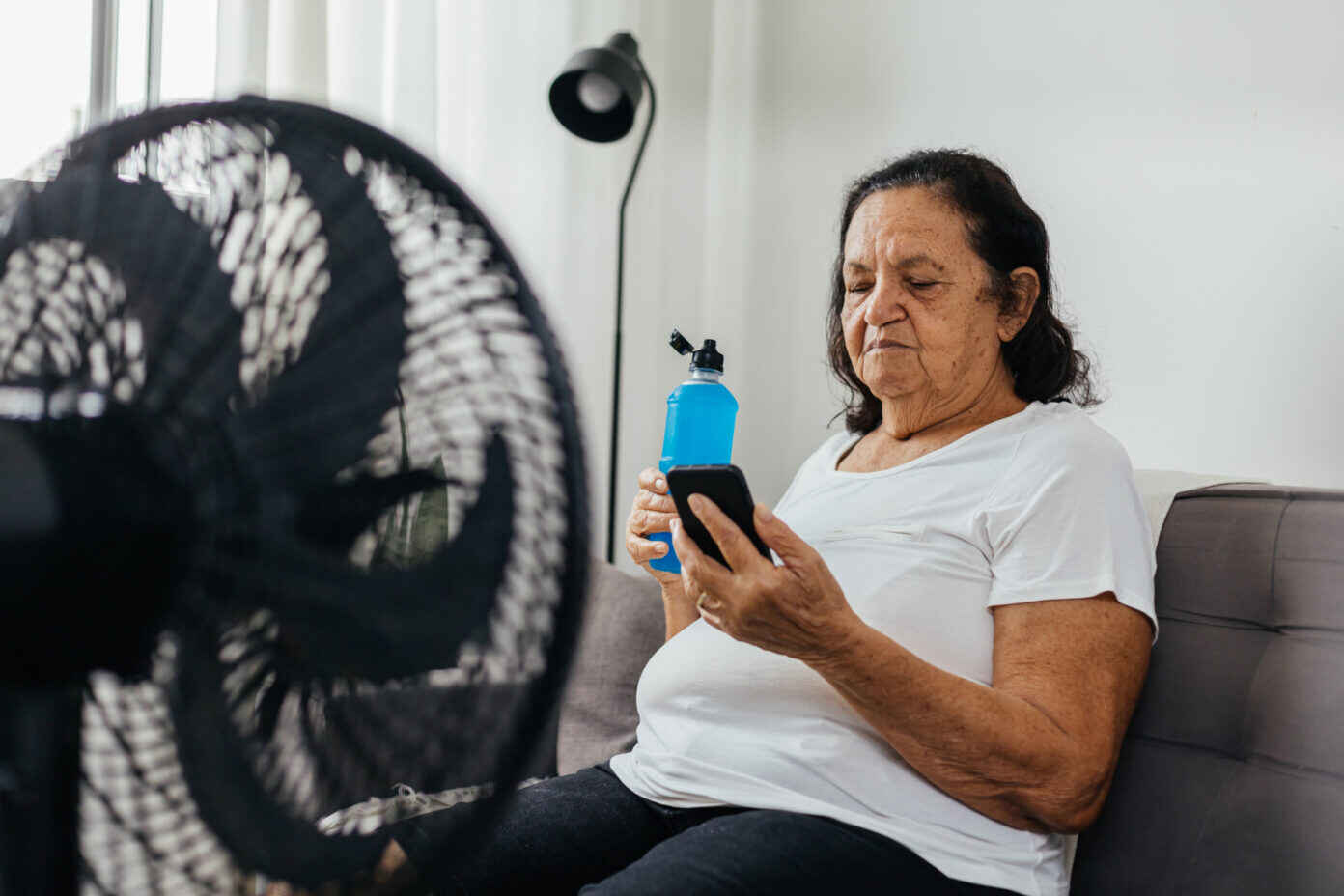Turning up the Temperature on Tenants’ Rights: Heat Island Living with No Right to Air Conditioning
August 4, 2023
Overview
Summer is here and so too are the days of record-breaking temperatures. More than a mere nuisance, for people who live in a heat island, the extreme temperatures are dangerous and life-threatening. Despite the serious health implications that lack of air-conditioning can have for vulnerable tenants, no state has enacted a law mandating that landlords provide air-conditioning.

Summer is here and so too are the days of record-breaking temperatures. Heat islands occur when roads, buildings, and other impervious surfaces “absorb and retain heat during the hottest times of the day and reduce cooling overnight.”Those who live in heat islands will experience rising temperatures during the day from one to seven degrees Fahrenheit, and two to five degrees Fahrenheit at night.
There are methods to mitigate the heat island effect, including increasing tree cover, and work is being done to designate heat island officials to work on mitigation. But these efforts will take time. For tenants today, escaping the grip of extreme heat at home is not easy because even in heat island areas, tenants do not have the right to air conditioning.
Living in a heat island is not optimal for anyone and it presents devastating health implications for the very young, older adults, and anyone with a preexisting health condition exacerbated by heat. Tenants living in a heat island are more susceptible to heat-related illness such as heat exhaustion, heat cramps, dizziness, and one of the most serious—heat stroke, which if left untreated can cause death. In addition, living in this environment can harm anyone with asthma, cardiac issues, and mental illness by placing these tenants at greater risk of suffering from complications. Air conditioning can reduce the risk of heat-related illnesses.
Despite the serious health implications that lack of air-conditioning can have for vulnerable tenants, no state has enacted a law mandating that landlords provide air-conditioning. Many states have taken minimal action by requiring that air conditioning be maintained if it is already provided in the rental unit, but this does not help tenants living in units or homes without air conditioning. In the absence of meaningful state action, local jurisdictions such as Montgomery County, Maryland; and Dallas, Texas, are taking the initiative by passing legislation mandating that landlords provide air conditioning that meets certain standards.
In addition, there is little help for tenants in laws that define uninhabitable conditions that can serve as the basis for rent escrow (holding back rent until repairs are made) or breach of habitability claims (suing the landlord for not providing livable space)[i]. Arizona law provides some benefit to tenants as lack of adequate cooling is considered “a condition that materially affects the health and safety of the occupants of a residential rental dwelling.” But in other states, like Maryland, warranty of habitability or rent escrow statutes include a presumption that air conditioning is not an essential component to make the home habitable. This is in direct contrast with many state laws that mandate heating systems in all rental units. As a result, tenants are unlikely to prevail in a rent escrow or breach of the warranty of habitability case based on lack of air conditioning.
As local jurisdictions begin to pass legislation mandating air conditioning requirements, states and other jurisdictions looking to provide their tenants with similar rights have several options to choose from; these include both minor and aggressive approaches. A minor approach would eliminate procedural presumptions that weigh against air conditioning and would specifically add lack of air conditioning to a rent escrow statute.
On the opposite side of the spectrum, a more effective and thorough approach would include automatically requiring landlords to provide their tenants with air conditioning. By taking either approach, states and local jurisdictions can work to ensure that their tenants have protections from the heat island effect, and thus live in a heathier and safer home.
This post was written by Wesley Schrum, student attorney (Class of 2023), and reviewed by Kathleen Hoke, Director, Network for Public Health Law – Eastern Region Office at the University of Francis King Carey School of Law.
The Network for Public Health Law provides information and technical assistance on issues related to public health. The legal information and assistance provided in this document does not constitute legal advice or legal representation. For legal advice, readers should consult a lawyer in their state.
Support for the Network is provided by the Robert Wood Johnson Foundation (RWJF). The views expressed in this post do not represent the views of (and should not be attributed to) RWJF.
[i] For more information on rent escrow and habitability standards, please see Rent Escrow as a Tool for Enforcing Tenants Rights.
